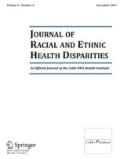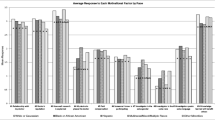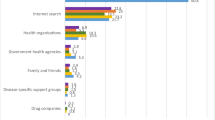Abstract
Objective
This study aims to investigate research professionals’ perspectives regarding minority participation in clinical trials.
Methods
A web-based survey of research professionals at US institutions receiving NIH and/or AHRQ funding to conduct clinical research in 2013. Descriptive statistics, mean, standard deviation (SD), and the Wilcoxon rank-sum test were utilized for analysis.
Results
Distributed were 13,041 surveys with 967 (7.4%) responses. Overall and race-stratified analyses included 633 and 521 surveys, respectively. A majority agreed that patients’ race (mean, 3.4; SD = 1.0) and primary language (mean, 4.0; SD = 0.9) have an effect on enrollment. They had more success in enrolling those whose primary language was the same as their own (mean, 3.8; SD = 1.0), and that a language barrier and time spent arranging for interpreters had prevented them from offering a study to potential candidates (mean, 3.2; SD = 1.2). Non-Caucasian respondents were more likely to agree that “fear of unknown side effects” was a deterrent for minorities (p < 0.01), “minorities are more likely to be unavailable for follow-up phone calls” (p = 0.07), and “the unavailability of translated material discourages non-English speakers from participation” (p = 0.08). They also were more likely to be neutral or agree with being discouraged from enrolling minorities because of the possibility of their withdrawal or being less likely to be available for phone follow-ups and follow-up visits (all p < 0.01).
Conclusion
Despite a few subtle racial differences in research professionals’ perspectives, a majority expressed no hesitation in enrolling minorities. Patients’ race and primary language appeared to influence enrollment. A language barrier appeared to be the strongest barrier for research professionals.

Similar content being viewed by others
References
Anderson GD. Sex and racial differences in pharmacological response: where is the evidence? Pharmacogenetics, pharmacokinetics, and pharmacodynamics. J Women’s Health (Larchmt). 2005;14:19–29.
Chen ML. Ethnic or racial differences revisited: impact of dosage regimen and dosage form on pharmacokinetics and pharmacodynamics. Clin Pharmacokinet. 2006;45:957–64.
Phan VH, Moore MM, McLachlan AJ, Piquette-Miller M, Xu H, Clarke SJ. Ethnic differences in drug metabolism and toxicity from chemotherapy. Expert Opin Drug Metab Toxicol. 2009;5:243–57.
Murthy VH, Krumholz HM, Gross CP. Participation in cancer clinical trials: race-, sex-, and age-based disparities. JAMA. 2004;291:2720–6.
Garber M, Arnold RM. Promoting the participation of minorities in research. Am J Bioeth. 2006;6:W14–20.
Eshera N, Itana H, Zhang L, Soon G, Fadiran EO. Demographics of clinical trials participants in pivotal clinical trials for new molecular entity drugs and biologics approved by FDA from 2010 to 2012. Am J Ther. 2015;22:435–55.
Ford JG, Howertown MW, Lai GY, Gary TL, Bolen S, Gibbons MC, Tilburt J, Baffi C, Tanpitukpongse TP, Wilson RF, Powe NR, Bass EB. Barriers to recruiting underrepresented populations to cancer clinical trials: a systematic review. Cancer. 2008;112:228–42.
Giuliano A, Mokuau N, Hughes C, Tortolero-Luna G, Risendal B, Ho RCS, Prewitt TE, McCaskill-Stevens WJ. Participation of minorities in cancer research: the influence of structural, cultural, and linguistic factors. Ann Epidemiol. 2000;10(Suppl 8):S22–34.
Shavers VL, Lynch CF, Burmeister LF. Racial differences in factors that influence the willingness to participate in medical research studies. Ann Epidemiol. 2002;12:248–56.
Braunstein JB, Sherber NS, Schulman SP, Ding EL, Powe NR. Race, medical researcher distrust, perceived harm, and willingness to participate in cardiovascular prevention trials. Medicine (Baltimore). 2008;87:1–9.
Kurt A, Semler L, Jacoby JL, Johnson MB, Careyva BA, Stello B, Friel T, Knouse MC, Kincaid H, Smulian JC. (2016) Racial differences among factors associated with participation in clinical research trials J Racial Ethnic Health Disp
van Ryn M, Burke J. The effect of patient race and socio-economic status on physicians’ perceptions of patients. Soc Sci Med. 2000;50:813–28.
Nelson A. Unequal treatment: confronting racial and ethnic disparities in health care. J Natl Med Assoc. 2002;94:666–8.
Burgess DJ, SS F, van Ryn M. Why do providers contribute to disparities and what can be done about it? J Gen Intern Med. 2004;19:1154–9.
Bean MG, Stone J, Moskowitz GB, Badger TA, Focella ES. Evidence of nonconscious stereotyping of Hispanic patients by nursing and medical students. Nurs Res. 2013;62:362–7.
Moskowitz GB, Stone J, Childs A. Implicit stereotyping and medical decisions: unconscious stereotype activation in practitioners’ thoughts about African Americans. Am J Pub Health. 2012;102:996–1001.
Wendler D, Kington R, Madans J, Van Wye G, Christ-Schmidt H, Pratt LA, Brawley OW, Gross CP, Emanuel E. Are racial and ethnic minorities less willing to participate in health research? PLoS Med. 2006;3:e19.
Eggly S, Barton E, Winckles A, Penner LA, Albrecht TL. A disparity of words: racial differences in oncologist-patient communication about clinical trials. Health Expect. 2015;18:1316–26.
Katz RV, Kegeles SS, Kressin NR, Green BL, Wang MQ, James SA, Russell SL, Claudio C. The Tuskegee legacy project: willingness of minorities to participate in biomedical research. J Health Care Poor Underserved. 2006;17:698–715.
Robinson JM, Trochim WM. An examination of community members,’ researchers’ and health professionals’ perceptions of barriers to minority participation in medical research: an application of concept mapping. Ethn Health. 2007;12:521–39.
Durant RW, Davis RB, St. George DM, Williams IC, Blumenthal C, Corbie-Smith GM. Participation in research studies: factors associated with failing to meet minority recruitment goals. Ann Epidemiol. 2007;17:634–42.
Durant RW, Wenzel JA, Scarinci IC, Paterniti DA, Fouad MN, Hurd TC, Martin MY. Perspectives on barriers and facilitators to minority recruitment for clinical trials among cancer center leaders, investigators, research staff, and referring clinicians: enhancing minority participation in clinical trials (EMPaCT). Cancer. 2014;120(Suppl 7):1097–105.
Charleswell CA. Commentary: clinician and researcher contributions to disparities in racial and ethnic minority participation in human subjects research. Ethn Dis. 2014;24:298–301.
National Institutes of Health. AHRQ policy on the inclusion of priority populations in research. In: Notice #NOT-HS-03-010. 2003. http://grants.nih.gov/grants/guide/notice-files/NOT-HS-03-010.html. Accessed 14 Sept 2016.
National Institutes of Health. NIH policy and guidelines on the inclusion of women and minorities as subjects in clinical research (amendment to the 1994 Federal Register). In: Notice #NOT-OD-02-001. 2001. http://grants.nih.gov/grants/guide/notice-files/NOT-OD-02-001.html. Accessed 14 Sept 2016.
StataCorp. Stata Statistical Software: Release 12. College Station, TX: StataCorp LP; 2011.
United States Census Bureau. Projections of the size and composition of the U.S. population: 2014 to 2060. In: 2014 National Population Projections: Publications. 2015. http://www.census.gov/population/projections/data/national/2014/publications.html. Accessed 14 Sept 2016.
Calderón JL, Baker RS, Fabrega H, Conde JG, Hays RD, Fleming E, Norris K. An ethno-medical perspective on research participation: a qualitative pilot study. Med Gen Med. 2006;8:23.
Schmotzer GL. Barriers and facilitators to participation of minorities in clinical trials. Ethn Dis. 2012;22:226–30.
Powell JH. Clinical trial diversity, drug development, and health disparities: a perspective from Project IMPACT. Monitor (newsletter). 2008;12:29–33. http://www.africanamericanhealthmatters.com/uploads/JPowell-Clinicaltrialdiversity-drugdevelopment-healthdisparities.pdf. Accessed 25 April 2016.
Sisk JE, Horowitz CR, Wang JJ, McLaughlin MA, Hebert PL, Tuzzio L. The success of recruiting minorities, women, and elderly into a randomized controlled effectiveness trial. Mt Sinai J Med. 2008;75:37–43.
Kahn JS, Greenblatt RM. Mentoring early-career scientists for HIV research careers. Am J Public Health. 2009;99:S37–42.
George S, Duran N, Norris KA. Systematic review of barriers and facilitators to minority research participation among African American, Latinos, Asian Americans and Pacific Islanders. Am J Public Health. 2014;104:e16–31.
Valcarcel M, Diaz C, Santiago-Borrero PJ. Training and retaining of underrepresented minority physician scientists—a Hispanic perspective: NICHD-AAP workshop on research in neonatology. J Perinatol. 2006;26:S49–52.
Jeste DV, Twamley EW, Cardenas V, Lebowitz B, Reynolds III CF. A call for training the trainers: focus on mentoring to enhance diversity in mental health research. Am J Public Health. 2009;99:S31–7.
Getz K, Faden L. Racial disparities among clinical research investigators. Am J Ther. 2008;15:3–11.
Williams IC, Corbie-Smith G. Investigator beliefs and reported success in recruiting minority participants. Contemp Clin Trials. 2006;27:580–6.
Acknowledgements
We acknowledge Stephen W. Dusza, DrPH, for his help with the study design and statistical analysis. This study received unrestricted research grant funding from a community non-profit philanthropic trust, the Anne and Carl Anderson Trust.
Author information
Authors and Affiliations
Corresponding author
Ethics declarations
Ms. Semler and Mr. Meyers were Research Associates in the Department of Emergency Medicine Research at the time this work was completed. All persons listed as authors meet the criteria for authorship established by the ICMJE and take responsibility for the article’s content.
Ethical Approval
All procedures performed in this study involving human subjects were in accordance with the ethical standards of the IRB and with the 1964 Helsinki declaration and its later amendments.
Informed Consent
This anonymous and voluntary survey study was IRB approved as “exempt;” therefore, an alteration of informed consent was granted.
Funding
This study was supported by an unrestricted research grant funding from a non-philanthropic trust, the Anne and Carl Anderson Trust.
Conflict of Interest
The authors have no outside support, conflicts, or financial interests to disclose.
Rights and permissions
About this article
Cite this article
Kurt, A., Semler, L., Meyers, M. et al. Research Professionals’ Perspectives, Barriers, and Recommendations Regarding Minority Participation in Clinical Trials. J. Racial and Ethnic Health Disparities 4, 1166–1174 (2017). https://doi.org/10.1007/s40615-016-0322-0
Received:
Revised:
Accepted:
Published:
Issue Date:
DOI: https://doi.org/10.1007/s40615-016-0322-0




